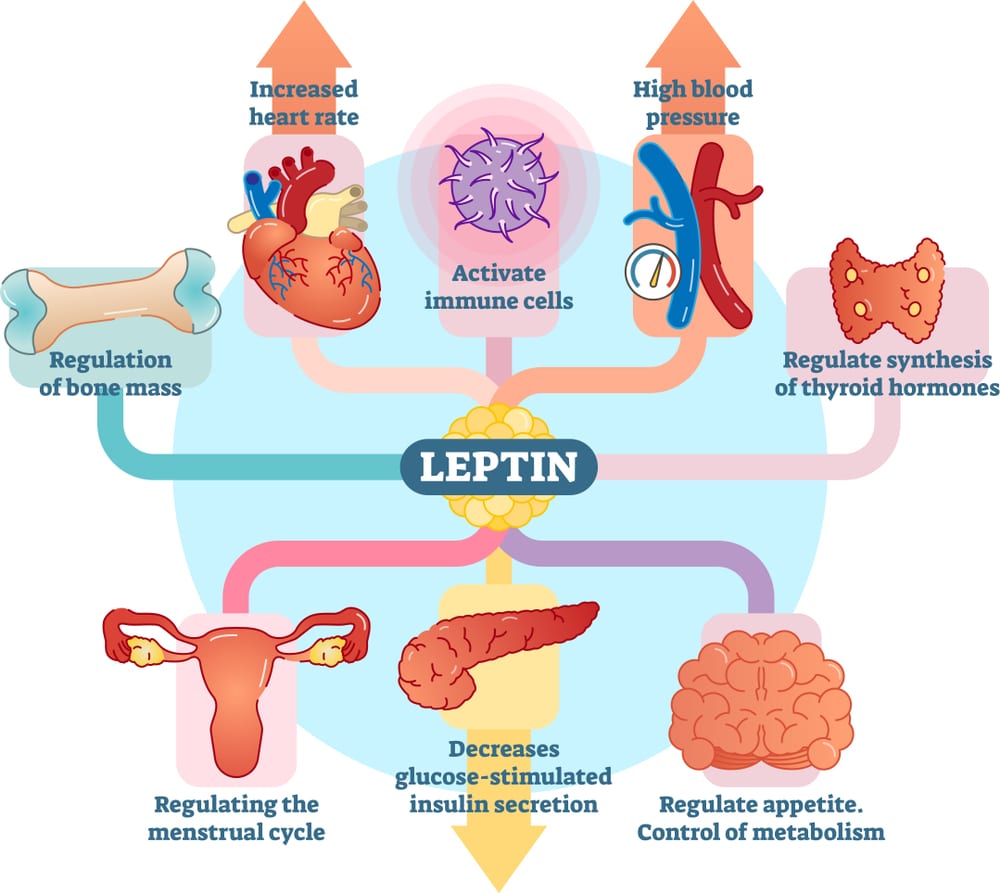
Leptin is a hormone that was discovered fairly recently, in the mid-1990s. The discovery generated much excitement over the potential for finally treating obesity effectively. In fact, leptin is named after the Greek word for “thin,” leptos.
Leptin plays an important role in several bodily functions, including metabolism, endocrine function, and regulating energy homeostasis. Although the leptin hormone has not been known for long, researchers have learned a wealth of information about its role in body functions associated with weight loss.
Leptin and obesity are linked in a variety of ways. Understanding leptin function and how it can tie in with weight loss management and weight loss programs begins by understanding what the leptin hormone is. At Mint Nutrition in Mooresville, NC, we offer a variety of weight loss management programs that are customized for everyone who relies on us for support and guidance on their weight loss journey.
At its most basic level, the leptin hormone is a hormone that is produced in and released by body fat, or adipose tissue. It has many jobs, one of which is to help people maintain a normal body weight on a long-term basis. But leptin and obesity are related in more ways than long-term weight regulation.
Leptin is an appetite suppressant, and it’s responsible for helping people feel full. For this reason, it’s often called a satiety hormone — a hormone that helps people feel satisfied. The leptin hormone sends a signal to the brain that makes people less interested in food, regulating the portions that are consumed at meals.
Everyone has leptin in their bodies. Although it’s made by adipose tissue, the stomach releases some leptin when a person eats. It then travels through the bloodstream to the brain, signaling the brain to tell the body to stop eating. Leptin functions like a messenger that tells the brain when the stomach has enough “fuel.”
On the other hand, when low amounts of leptin reach the brain, people generally will feel more hungry. A weight loss program that restricts food too much will ultimately cause too little leptin to reach the brain, and the person will feel very hungry.
This, of course, increases the chance that that person’s weight loss journey will fail. For this reason, a proper leptin weight loss program should be followed.
Since leptin is an appetite suppressant, it helps balance how much food a person eats with how much fat the person has, which should keep people at a healthy weight. This is why many people get hungrier when they cut calories — the less fat mass a person has, the less leptin a person’s body can make.
Have you heard many experts’ advice to eat frequent, small meals when trying to lose weight? This is because leptin levels drop if a person doesn’t eat for several hours. It’s the body’s way of signaling to a person that they feel hungry to remind them to stay nourished with food.
It’s important to understand that leptin is not the only factor that influences hunger; hunger is a complex process. Doctors know that psychological issues, social issues, and other factors also have an effect on a person’s appetite. They also affect leptin production.
The main biological role of leptin in weight loss is to tell the body when to stop eating. However, several things can interfere not only with leptin production, but also with the body’s ability to recognize leptin.
Sleep is one of those factors. When the body lacks sleep, the levels of several hormones are impacted, including leptin. This is why many people want to eat when they are tired, even when they aren’t hungry. The body sees a lack of sleep as an energy loss that must be “fixed” with food. Leptin falls to lower levels during the night, which makes sense, since most people don’t wake up in the middle of the night just to eat because they’re hungry.
If you’ve ever heard of insulin resistance in type 2 diabetes, you might be familiar with the concept of leptin resistance, which could lead to weight gain and overeating. The two conditions often co-exist in adults.
Leptin resistance happens when a person keeps eating even though they have plenty of leptin and fat tissue. The brain does not recognize that it has adequate leptin levels, a problem that is common in people with obesity.
Just as with insulin resistance, when the body doesn’t respond to the insulin the pancreas makes, leptin resistance can cause the brain not to respond to the leptin the body makes. This causes the person to keep eating even when they don’t need to do so.
The best weight loss programs begin with a personalized and detailed health assessment. One-on-one coaching, along with protocols that can help you manage leptin, hunger, and satiety, can help you achieve your leptin weight loss goals. At Mint Nutrition, we offer a holistic weight loss program that is designed to improve your overall health and quality of life while supporting your weight loss journey and maintaining good leptin levels.
If you’re ready to learn about our weight loss programs and what we can do to help you reach your goal weight and stay there, contact us today to get started with a no-obligation consultation.

Integrative Nutritionist & Dietitian
"*" indicates required fields
Oops! We could not locate your form.